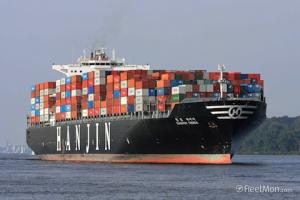The Hidden Costs of Containerization
American Prospect
 The shipping companies have been transporting goods at a loss. They put too many ships into service and they continued to order increasingly larger ships at. The shipyards competed fiercely for the orders and built the ships at bargain prices, although they are technological jewels. With the increase in freight capacity, freight rates plummeted, volumes grew but the income per unit of freight transported decreased. Then, China slowed exports creating the perfect storm.
The shipping companies have been transporting goods at a loss. They put too many ships into service and they continued to order increasingly larger ships at. The shipyards competed fiercely for the orders and built the ships at bargain prices, although they are technological jewels. With the increase in freight capacity, freight rates plummeted, volumes grew but the income per unit of freight transported decreased. Then, China slowed exports creating the perfect storm.
Spread the word